Martin McGuinness, 66, who went from being a paramilitary leader to laying the foundations for peace in Northern Ireland, was diagnosed with a rare heart condition in December and died in a hospital in Derry, Northern Ireland, surrounded by his family on Monday grew up in a province radically different from the one in which he leaves behind.
The Derry in which McGuinness grew up was marked by deprivation and gerrymandering that ensured the majority Catholic community in the city was never able to exercise political influence. Discrimination in employment, housing and education was widespread.
McGuinness was an early activist in the Northern Ireland Civil Rights Association, formed in the late 1960s to work for equal rights for Catholics. However, he later joined the Irish Republican Army, which was leading an armed insurrection against British rule in Northern Ireland. The organisation - which split and became the Provisional IRA was classified as a terrorist group by the British and Irish governments and successive US administrations. In 1973, McGuinness was imprisoned for six months for terrorism-related activates and later claimed he resigned from the Provisional IRA the following year.
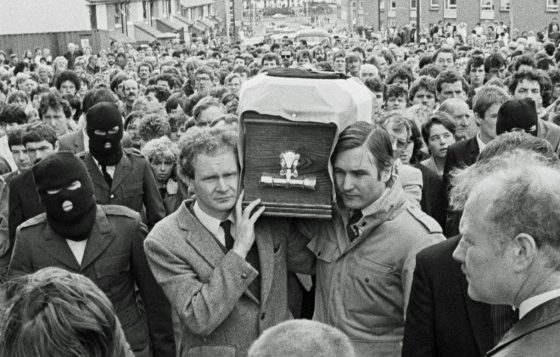
McGuinness carries the coffin of a 'volunteer' in 1985
In the 1970s, he became a key figure in Sinn Fein, the political wing of Irish republicans opposed to British rule in Northern Ireland. He is credited with playing a key role in convincing the Provisionals to call a ceasefire in 1994 and embrace purely peaceful means. In the political talks that followed, he was named by Sinn Fein as the party's chief negotiator. Politicians said his military background was instrumental in convincing militant republicans to keep faith in the peace process, even when they thought too many concessions were being made.
He was a signatory to the 1998 Good Friday Agreement, which established the Catholic-Protestant power-sharing government in Northern Ireland, and was subsequently appointed minister for education. In 2007, he was appointed deputy first minister of Northern Ireland - effectively a joint prime minister role with the Rev Ian Paisley, the leading figure within political Protestantism.
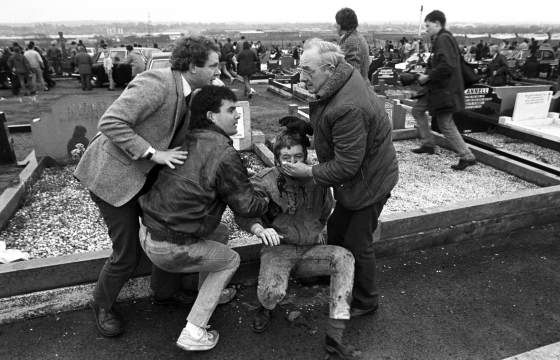
McGuinness helps an injured mourner after the gun and mortar attack at Milltown Cemetery by Loyalist Michael Stone
The partnership of the two former political foes became a symbol of how far Northern Ireland had travelled from the days of sectarian violence. McGuinness worked closely with Rev Paisley's successor as first minister, Peter Robinson. However, when Robinson was replaced by Arlene Foster in 2016, relations turned sour, and McGuinness resigned in January of this year.
His death came as political leaders scrambled to meet a 27 March deadline to make a new deal to re-establish the power-sharing government before the British government intervenes to rule Northern Ireland directly from London.
From a traditional Catholic background, McGuinness was private about his faith but always described himself as a believing Catholic and attended Mass weekly. However, his stance in favour of Sinn Fein's support for same-sex marriage and more liberal laws on abortion drew criticism from within the Catholic community and pro-life activists.
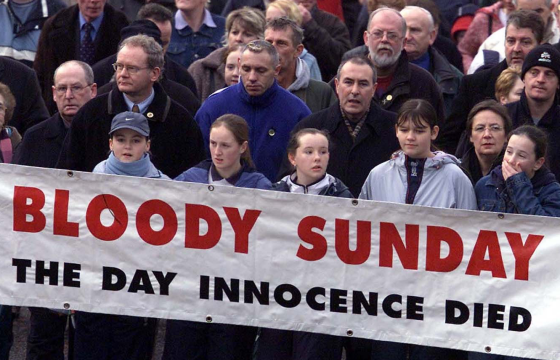
McGuinness at a march through Derry to commemorate Bloody Sunday
Father Joe McVeigh, a priest based in Northern Ireland who considered McGuinness a close personal friend, told Catholic News Service that the politician was "one of the people mainly responsible for taking the gun out of Irish politics".
The priest said McGuinness would "be forever remembered for his key role in building the peace after almost 30 years of violent conflict, when many had almost despaired of ever finding a peaceful way forward.
"He remained firm in his republican belief in a reunified Ireland, but he always showed respect to those who differed."

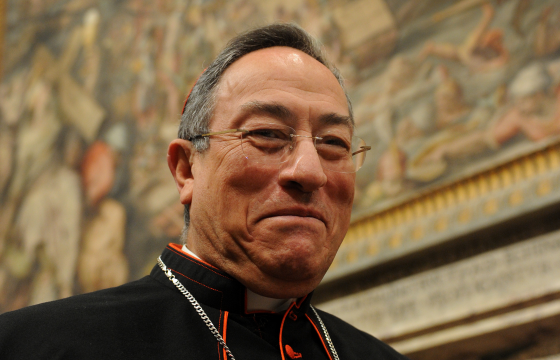
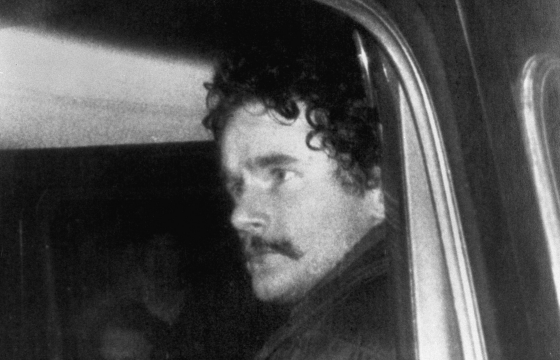

 Loading ...
Loading ...